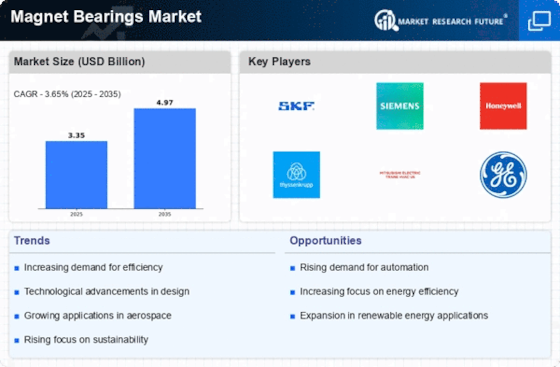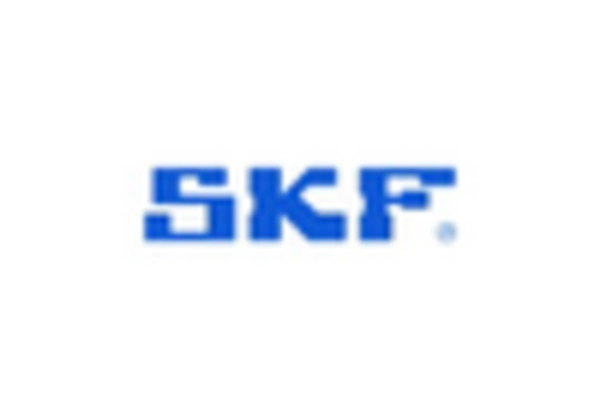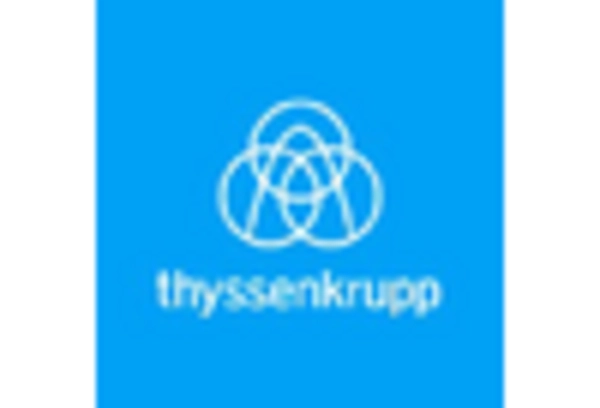Market Analysis
In-depth Analysis of Magnet Bearings Market Industry Landscape
The magnet bearings market is undergoing significant shifts influenced by various market dynamics that reflect the evolving landscape of industrial applications and technological advancements. One of the primary drivers propelling the magnet bearings market is the increasing demand for high-performance and maintenance-free bearing solutions in various industries. Considering the deficit in wear, friction, and lubrication of traditional bearing systems, magnet bearings come to the rescue with the help of magnetic fields that levitate and support the rotating masses. This technology is highly demanded in applications where reliability, accuracy, and the reduction in the maintenance service are important, like in rotating equipment in manufacturing and power generation. Technological upgradations and innovation plays a significant role in influencing the trajectory of magnet bearings market. The development of magnetic bearing technology, which includes control algorithms, sensor integration and material science, is advancing the capabilities and usage of magnet bearings. The manufacturers are also focused on investing in the research and development of magnet bearings to increase their efficiency, load capacity, and adaptability across multiple industrial processes. Continual innovation creates a competitive market environment in which firms compete to deliver state-of-the-art solutions to industries with changing needs. The need for magnet bearings is also driven by the growing interest in energy effectiveness and sustainability in industries. The frictionless nature of the magnet bearings leads to a minimal energy loss and, consequently, lower wear rates and higher overall efficiency of rotating machinery. Since the industries in the world look for environment friendly practices and find ways to keep the ecological foot print as low as possible, the use of the magnet bearings fits to the overall strategy of saving energy and remaining operationally sustainable. Furthermore, the aerospace and automotive industries play a significant role in the magnet bearings market dynamics. The need for components that are lightweight and high-performance in these industries has led to the adoption of cutting-edge technologies including magnet bearings. Implementation of magnet bearings in aerospace applications results in weight reduction, which positively impacts fuel efficiency and overall aircraft performance. Similarly, in the automotive industry, the need for electric and hybrid vehicles stimulated magnet bearings introduction in several drivetrain and motor uses contributing to the creation of a cleaner and more environmentally responsible transportation system. The magnet bearings market dynamics are affected by global economic conditions and changes that take place in the industry. The industrial players’ decisions on whether or not to adopt advanced bearing technologies are influenced by market fluctuations, trade policies, and changes in manufacturing techniques. Moreover, with the evolution of industries towards automation and Industry 4.0 practices and the need for high accuracy control and robustness in machines, magnet bearings become an integral component in many automated systems.


















Leave a Comment